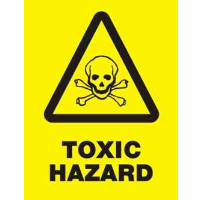AQMD OKs Exide Plan to Stop Polluting, but Doesn't Really Believe It Will Work

At last count, KPCC's timeline of the battery recycler Exide's “run-ins with regulators” the past 25 years in the Los Angeles County town of Vernon had reached 39, although it was missing Exide Technologies' recent lawsuit to block new rules passed by the South Coast Air Quality Management District (AQMD) in January.
Now KPCC can add last week's interim capitulation by the district.
The AQMD approved a plan submitted by Exide to address some of its pollution issues although agency executive officer Barry Wallerstein said he doubts Exide's “ability and/or desire” to execute it. He noted for the Los Angeles Times a string of misdeeds by the company, its poor track record at making meaningful adjustments and resistance to regulation.
He also essentially called them liars. “Their recent public announcements are disappointing and we are concerned they are misleading to the public,” he said.
There is also some concern about all the lead investigators found at nearby houses earlier in the month. The Department of Toxic Substances Control (DTSC) tested soil at 39 homes and two schools near the plant, which recycles up to 40,000 batteries a day, and found elevated levels of lead. The agency ordered Exide to come up with a plan for an expanded second round of tests, which it received and is pondering.
Although residents have complained about Exide for years, an AQMD report a year ago set folks' hair on fire when it said 110,000 people were at higher risk of cancer because of the plant's arsenic emissions. Exide proposes to make $5 million in changes to its facility in addition to $15 million worth of improvements already committed to.
The AQMD filed a separate civil suit for $40 million in January and has sought to shut down the facility until Exide can prove it is in control of toxic emissions. But Exide has managed to fend off its critics while making incremental upgrades and repairs.
Exposure to lead causes permanent brain damage and about half a million American kids have too much of it in their system. Lead lowers IQs, causes learning disabilities and has been linked to criminal behavior, stunted growth, seizures and a range of maladies. Needless to say, arsenic isn’t any better. It is notoriously poisonous and has been linked to cancer, heart disease, stroke, respiratory diseases and diabetes.
The plant's owner is currently in bankruptcy. The international battery manufacturer filed for Chapter 11 protection last June, nine years after shedding $1.3 billion in debt in a similar proceeding.
State Senator Kevin De León introduced legislation in January aimed at shutting the recycler down. Senate Bill 812 sets deadlines to close hazardous waste facilities that violate health and safety laws while operating on expired permits. Twenty-nine of the state's 117 facilities regulated by the DTSC don't have the proper permits to operate.
The Exide plant has operated under “interim status” for decades under a permitting system that the DTSC admits (pdf) is regarded with “significant dissatisfaction.”
The bill passed the Senate in January and is awaiting a hearing in the Assembly.
–Ken Broder
To Learn More:
Air Quality District OKs Exide's Plan—With Misgivings (by Jessica Garrison, Los Angeles Times)
Exide Sues AQMD Regulators, Not to Block Rule, It Says, But to Ask for More Time (by Molly Peterson, KPCC)
State Finally Looks for Lead Near Exide Battery Plant and Finds Lots of It (by Ken Broder, AllGov California)
- Top Stories
- Controversies
- Where is the Money Going?
- California and the Nation
- Appointments and Resignations
- Unusual News
- Latest News
- California Forbids U.S. Immigration Agents from Pretending to be Police
- California Lawmakers Urged to Strip “Self-Dealing” Tax Board of Its Duties
- Big Oil’s Grip on California
- Santa Cruz Police See Homeland Security Betrayal in Use of Gang Roundup as Cover for Immigration Raid
- Oil Companies Face Deadline to Stop Polluting California Groundwater





